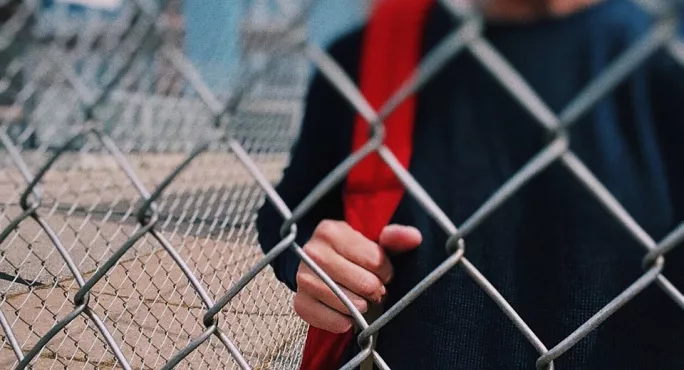- Home
- ‘Schools must not be blamed for knife crime’
‘Schools must not be blamed for knife crime’

You’ve probably seen the headlines. Recent comments from the former Met Police chief Lord Hogan-Howe suggesting that school exclusions are contributing to a rise in knife crime. A report from children’s commissioner Anne Longfield linking exclusions with gang membership. Emotive language suggesting that those pupils who have been excluded have simply been “abandoned”, “tossed aside” left to languish in the “sin bins” that are pupil-referral units (PRUs).
And who gives exclusions? Schools. Therefore, who must be to blame for all of this? Yep. Schools. If only us pesky teachers would try a little harder for our pupils, rather than foisting off the tricky ones to specialist units, many of society’s most complex problems would clearly be solved in one fell swoop.
In short, if you’re reading this, blame a teacher.
It’s hard, when you work in education, to not start taking all of this personally. I’ve been into close to 100 schools as a supply teacher and then in permanent roles. And as anyone with front-line education experience will tell you, the narrative above is not just reductive and insulting - parts of it are palpably inaccurate, too.
For starters, excluding a pupil from a school is a lengthy process (as it should be), requiring an evidence-based approach and a variety of ethical and administrative steps. It doesn’t just happen because a tired teacher reaches the final straw with a troubled student one trying Friday afternoon. In fact, most of the teachers I know are their own harshest critics when it comes to challenging children - no teacher wants to feel that they’ve “failed” one of their students. No school does either.
Teachers don’t want to exclude pupils
Of course, exclusions in and of themselves only really mean that we’ve failed a child if they actively lead to involvement in the kind of damaging activities mentioned above. But there’s little compelling evidence that exclusions cause children and young people to become involved in crime. Common sense might even suggest that having been excluded from mainstream education is simply one in a series of red flags alerting us to the fact that a young person is vulnerable. A holistic approach to these risk factors might prove a more effective remedy than educational scapegoating.
Because the other thing that’s obvious but worth saying is that pupils who are at risk of exclusion or who have been excluded really do need - and deserve - help. Targets around zero exclusions for schools are admirable when they focus on properly funded support; on taking collective responsibility as a society for the underlying problems that can leave children exposed. But it’s complex and nuanced and sometimes schools with their current budgetary and staffing constraints simply do not have the resources to make enough of a difference by themselves.
And in those circumstances, they absolutely have to consider the wellbeing of all of their students. Challenging behaviour is one very obvious cry for help - but most teachers will also have children engaged in silent struggles with their own issues and challenges. I want to have the time and energy to help every child in my class. And sometimes living by the maxim that every child matters means accepting that we can’t always cater for all of them in the same mainstream classroom.
The alternative - pressuring schools to avoid exclusions in all circumstances - means accepting the reality that a small number of children should be allowed to disrupt the education and, in extreme cases, the safety of the majority.
The final educational kick in the teeth at the heart of this suggestion that exclusion-happy schools are fuelling knife crime is the assumption that PRUs can’t actually help the students who find themselves there. Troubled children aren’t just stuck in PRUs to get them out of the way - the hope is that the change of context, the increased support and the staff with specialist experience of the most challenging behaviours might actually be able to make a difference where mainstream schools haven’t.
Do we need to keep monitoring exclusions then? Is it worth worrying when we notice they are on an upward trend? Do we need to consider the contexts and backgrounds of those most likely to find themselves in PRUs? Of course we do.
Shining a light on the social inequalities that leave children and young people with limited, treacherous paths from which to choose is essential. Finding innovative ways to support children, both within schools and within their communities, is essential. Taking seriously this idea that every child matters is essential.
But until we tackle the underlying factors more successfully (a job for everyone, not just schools incidentally,) for now, sometimes, exclusions are essential, too.
Kate Townshend is a teacher in Gloucestershire. She tweets @_KateTownshend
Keep reading for just £1 per month
You've reached your limit of free articles this month. Subscribe for £1 per month for three months and get:
- Unlimited access to all Tes magazine content
- Exclusive subscriber-only stories
- Award-winning email newsletters



